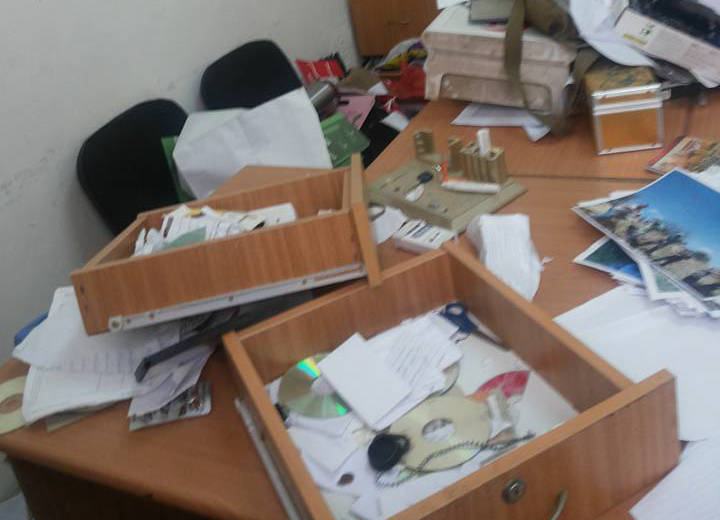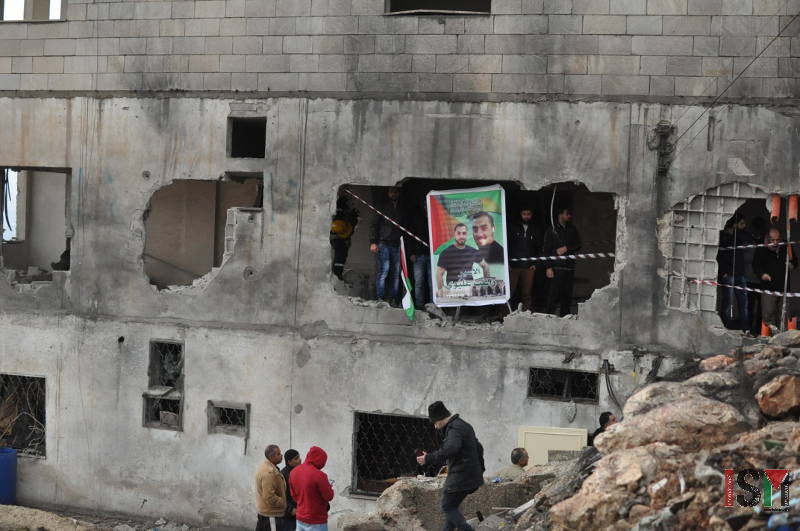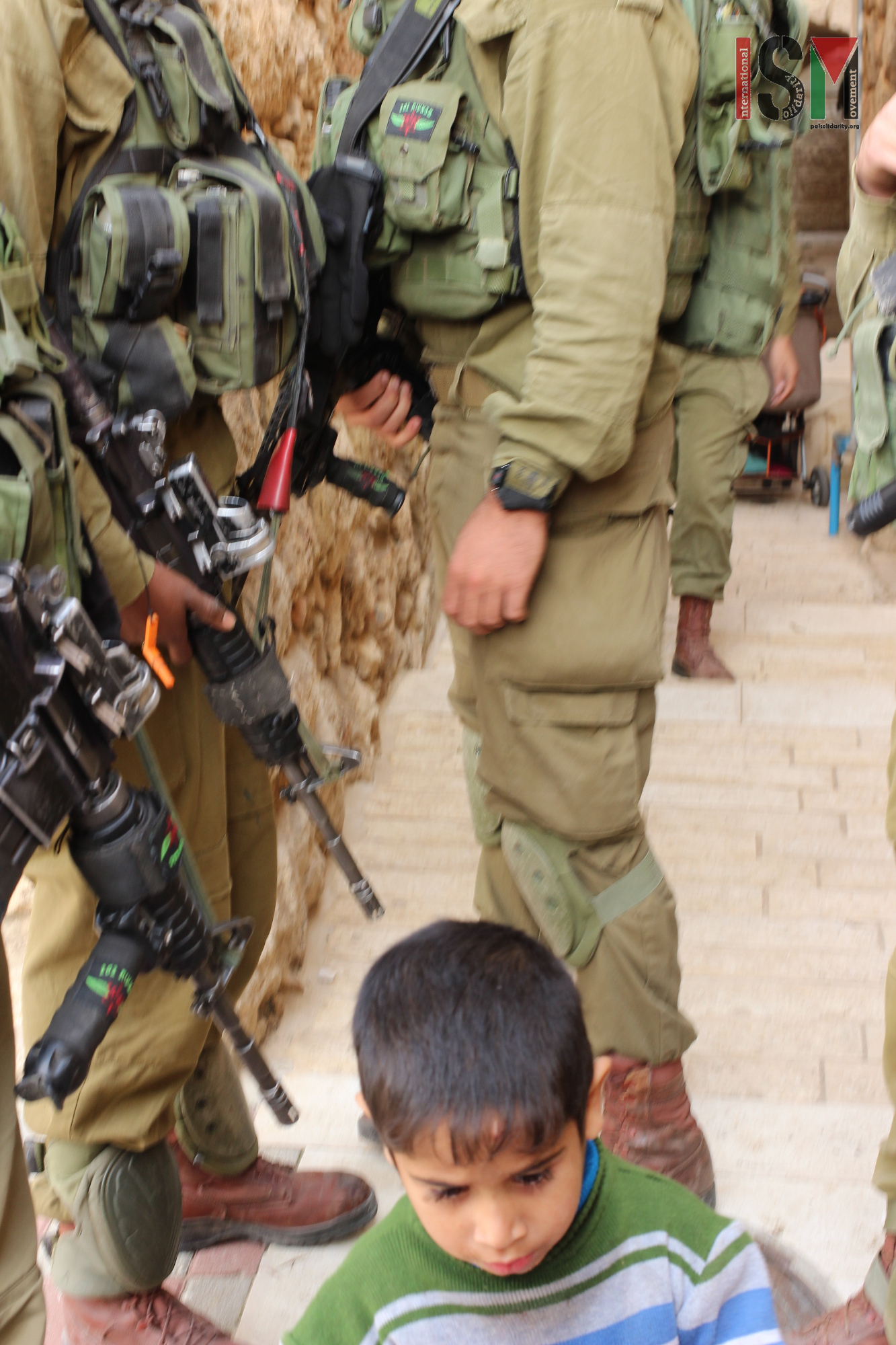Tag: Nablus
-
Tanweer cultural centre in Nablus raided at night, equipment stolen and damaged
15th of December, 2015 | International Solidarity Movement, Nablus team | Nablus, occupied Palestine On the night of the 10th of December, the Israeli forces raided the Palestinian cultural Centre Tanweer, near the old city of Nablus, and stole hardwares, wifi keys and a laptop after searching the whole centre. The organisation lost all of…
-
Home of Raghib Elawi demolished in Nablus, damaging surroundings severely
December 3rd, 2015 | International Solidarity Movement, Huwwara team | Nablus, occupied Palestine Wednesday night, at 1 am, Israeli forces came to the neighborhood of Dahia, in Nablus, to demolish the house of the family of Raghib Elawi, who was accused of participating in the Itamar killings a month ago. Local witnesses say that around…
-
Call from Palestine: Stop the execution of our children
27th November 2015 | International Solidarity Movement, al-Khalil team | Hebron, occupied Palestine We, the undersigned Palestinian political forces and organizations, appeal to local and international institutions, human rights organisations and democratic forces for immediate and decisive action concerning the execution of Palestinian children by Israeli occupation forces and settlers. To date, 18 Palestinian children…



